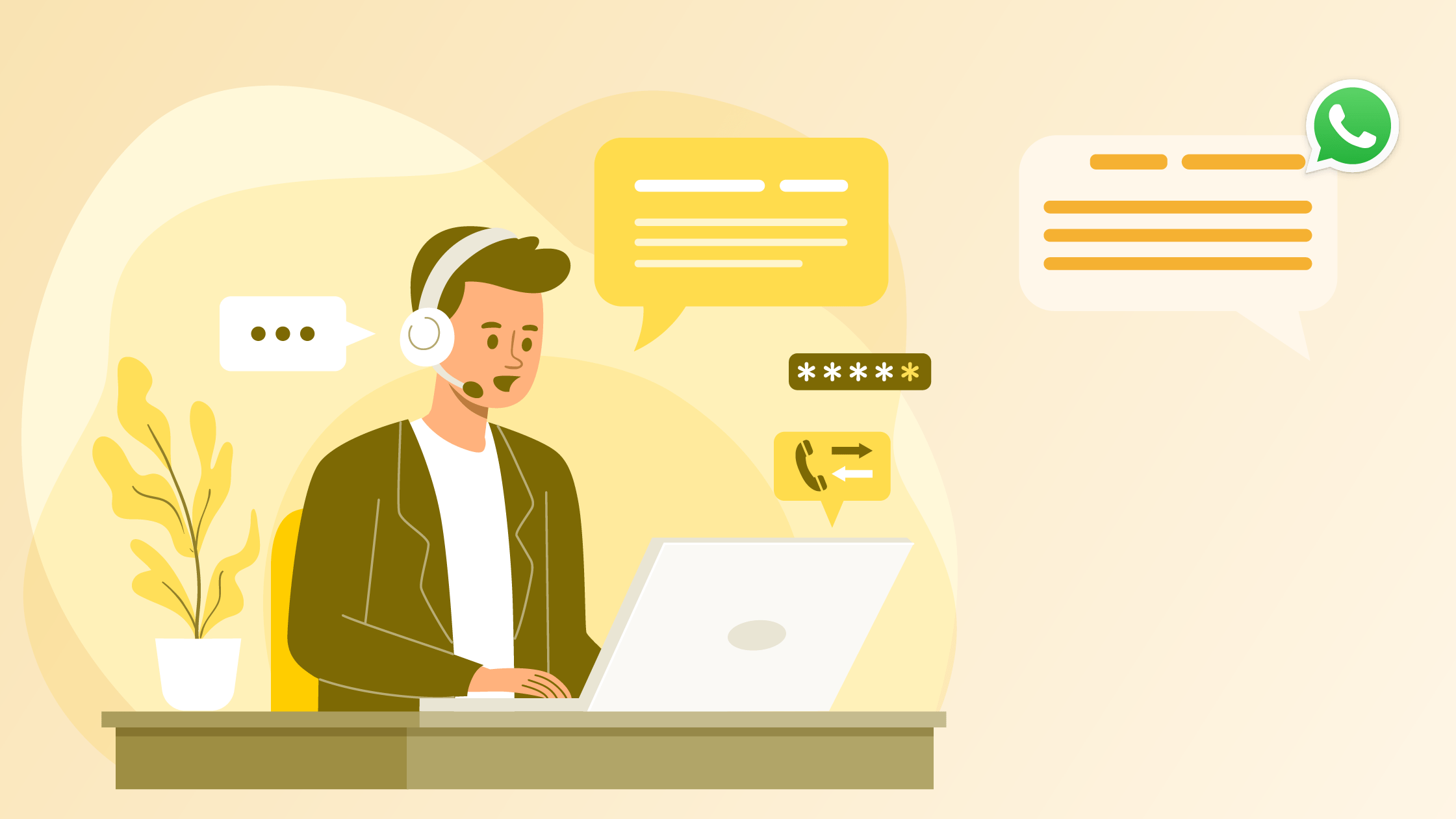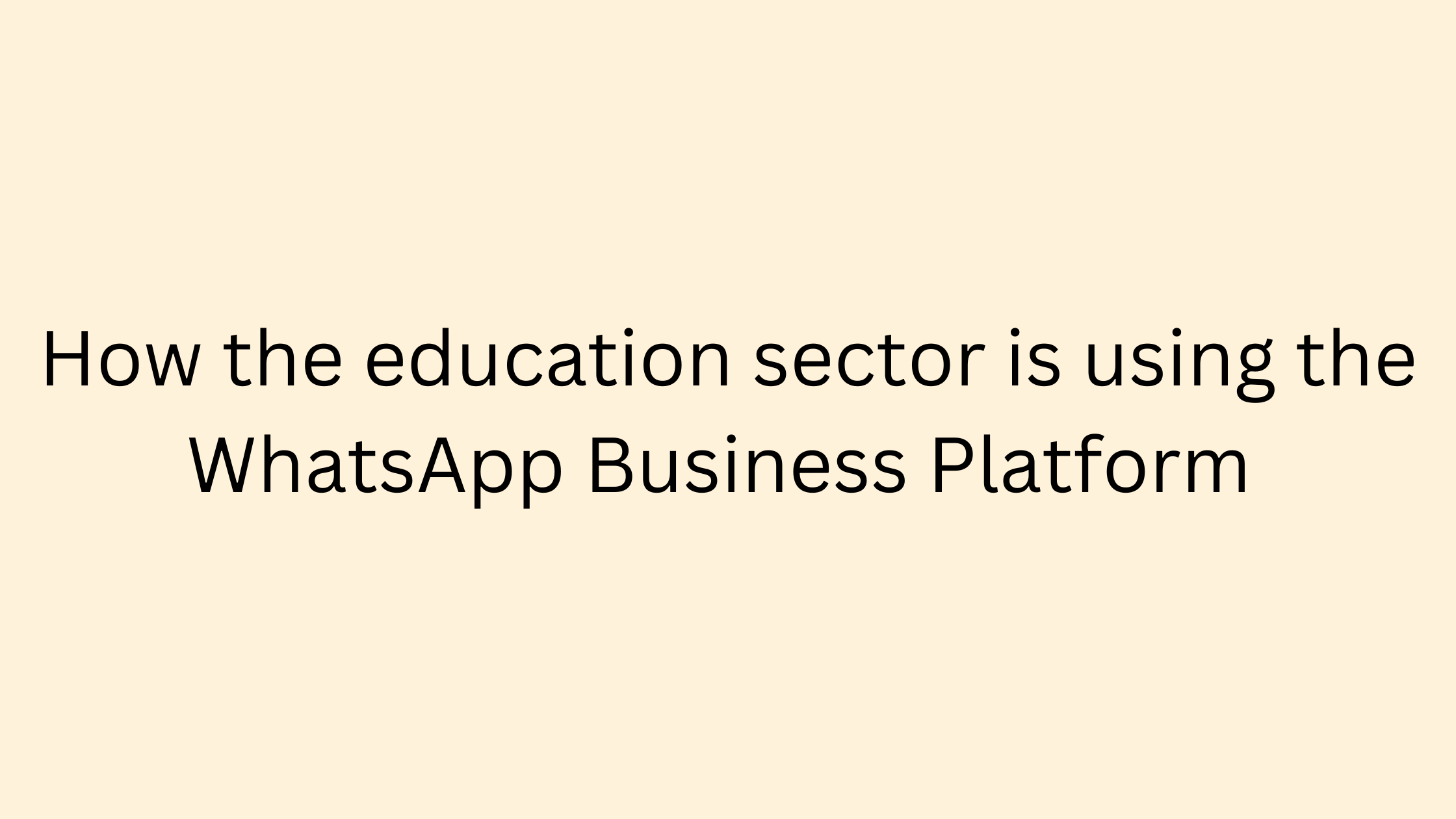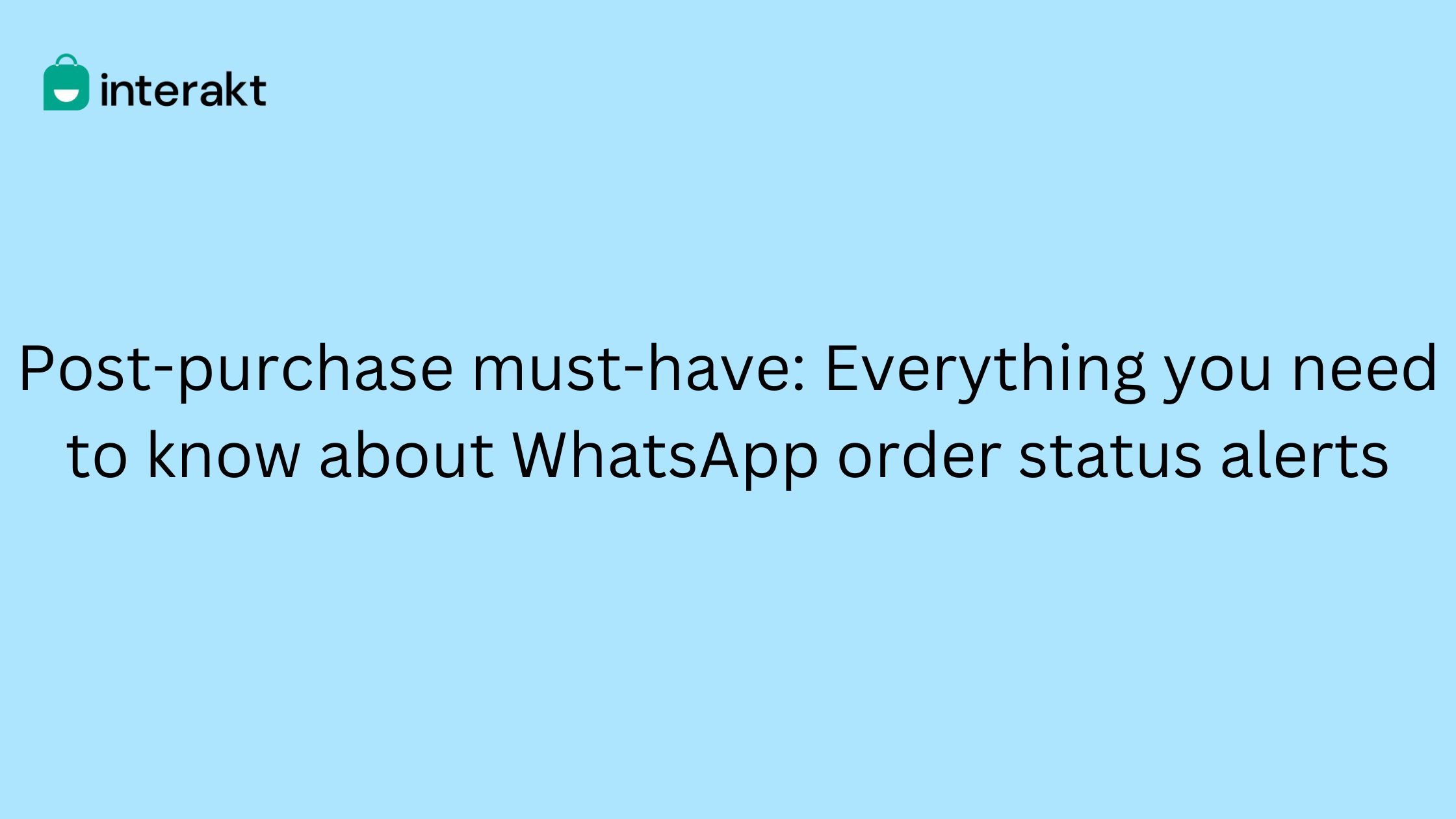In the last couple of lessons, we have been talking about using the WhatsApp Business API features to reach your customers and keep them engaged. But in this lesson, we’re going to talk about how the messaging platform can actually work with your existing sales strategies to help you get more sales – faster.
Strategy in focus being – Telesales.
Now telesales is a way of selling wherein businesses reach out to customers on the telephone to introduce their products or services, and take orders.
While this may seem like an old school strategy, it is still one of the most effective ways to understand a consumer’s needs and offer shopping assistance to help them make better purchase decisions.
With that recap in mind, it’s obvious to see that it is the conversations element of telesales that helps businesses sell. That’s exactly why we think you need to include WhatsApp into the mix to get more out of the strategy.
Let’s take a look at how you can achieve this.
Using WhatsApp Business and telesales to sell more
Please note that the following is just a suggested flow of using telesales and WhatsApp Business Platform features together. Feel free to tailor your strategy as per your business, audience and what you sell.
1. Capture consumer intent on WhatsApp
Using click-to-WhatsApp ads, on-site chat widgets or opt-ins across different product pages, you can capture consumer intent. This basically means understanding what products they have interest in or are exploring to solve a need.
2. Send a welcome message on WhatsApp
Using the WhatsApp Business Platform, you can set up an automated welcome message to follow up this consumer. You can use this message to send quick greetings and information about the product they have shown interest in.
3. Offer to get on a call
For some products and consumers, sending out information may or may not be enough to help them make a purchase. This is where it comes down to being the first to offer help and start a conversation. Using the WhatsApp Business API interactive messages, leverage the reply button to offer calling them.
4. Follow up on conversations
If the consumer chooses to receive a call, set up an automation to inform them when they can expect the call. But at the same time, also make sure that your team is informed about the same. A WhatsApp Business Platform that comes with a Shared Inbox. This makes it easy to keep up with requests for calls and tend to them in a timely manner.
5. Keep your call turnaround time fast
Continuing on the above, it is important to note that your turnaround time is of extreme importance here. If they have clicked on YES, you want to make sure that apart from the follow up, your team actually does give them a call.
Again, on the call, make sure to go equipped with information on what the consumer has requested information on, or is interested in. this will help you pick up the conversation much closer to them placing an order.
6. Follow up on no-responses
If a consumer does not respond to your offer to give them a call or offer shopping assistance and has opt-in to your WhatsApp list, make sure you follow up. You can do this in two ways – follow up on the product they had shown interest in or use WhatsApp broadcasts to introduce them to other items available in your store.
7. Automate your transactional messages
Once your telesales team takes an order on call, make sure you keep up with the post-purchase experience. Using a WhatsApp Business Platform like Interakt, automate all your transactional messages. This includes sending the order confirmation, order status updates, and similar.
8. Request feedback
The only way to make the most of telesales and WhatsApp marketing is to know how your consumers interact with the process. So on the orders that you complete, make sure you send out automation to also request feedback. This is crucial to make the feedback process more seamless and valuable to both you and the consumer.
Do telesales and WhatsApp work?
Carigar Tool is an online store that sells traditional power tools and machinery. Each of the products in their catalog requires understanding the intent, use case, and longevity a consumer is looking for.
The business has been using the above approach to make the most out of WhatsApp for Business and telesales. With the above approach, they have been able to get 20-50 orders per day, resolve 200-300 consumer queries and generate 300 leads through WhatsApp alone.
To say the least, yes combining the two strategies works. Learn more at Carigar tools case study.
Another example of using telesales and the WhatsApp Business API is that of Bombay Sweet Shop. With the help of Interakt, they have built Boondi the bot to offer a first level of interaction to consumers. The bot helps capture the intent of visitors and helps them make an informed purchase by sharing information.
Using the bot has helped the brand address 40% of queries that come in almost instantly, leading to more sales. You can read about their success story and strategy here.
Should you use telesales with WhatsApp Business?
The answer is that it depends entirely on who you’re selling to and what you sell. The goal should be to offer the shortest way possible for a consumer to make a purchase for their current need and interest.
If you have a high-ticket product/ service or something that requires customization, we recommend using this approach to understand the consumer better instead of using only automated campaigns that may not lead to faster conversions.
Now that you’re aware of the various strategies you can use to sell on WhatsApp, let’s move to the next crucial part of creating customer journeys – engaging your buyers.






